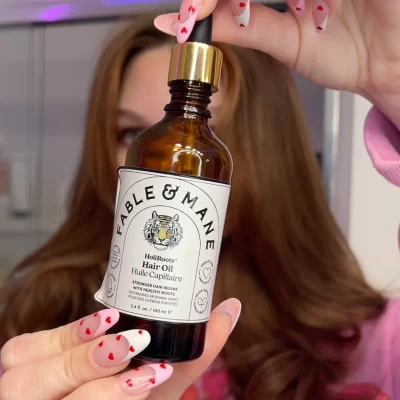Industry News:Cutting Through the Noise: How Pro Haircare Brands Are Winning with Smart Marketing
The pro haircare industry is going through a big shake-up, thanks to fresh marketing strategies that are changing the way brands connect with their audience. From making the most of digital platforms to building relationships with micro influencers, the brands that come out on top are the ones that truly know how to connect and communicate.

Tik Tok and the like: Digital Platforms for Enhanced Engagement
In the digital age, professional haircare brands capitalise on online platforms to reach a broader audience. A notable example is Procter & Gamble’s strategic partnership with China’s rapidly growing shopping app, Douyin (the Chinese counterpart of TikTok). Facing a 15% decline in revenue in China, P&G enhanced its marketing efforts on Douyin, focusing on improved packaging and targeted promotions for its Pantene shampoo line. This initiative led to increased online sales and a regained market share, demonstrating the effectiveness of digital engagement in reversing sales slumps. (reuters.com)
Another successful digital campaign was L’Oréal Professionnel’s #StyleMyHair initiative, which used augmented reality (AR) technology to allow consumers to try different hair colors and styles before purchasing products. This interactive approach not only boosted customer engagement but also increased online conversions and brand loyalty.

Micro Influencer Collaborations for Authentic Promotion
Influencer marketing has become a cornerstone strategy in the professional haircare sector. Brands are increasingly collaborating with nano and micro-influencers—content creators with smaller, highly engaged audiences—to promote their products authentically. For instance, haircare brand Fable & Mane has shifted its focus towards these smaller influencers, recognizing their ability to drive higher engagement rates compared to larger influencers. This approach not only enhances brand credibility but also fosters a loyal customer base through genuine endorsements. (voguebusiness.com)
A great example is Redken’s partnership with hair influencers who create educational content around their professional-grade products. Through targeted tutorials and behind-the-scenes salon content, Redken successfully bridges the gap between professional stylists and everyday consumers, reinforcing the credibility of its brand in the B2B and B2C markets.
Prioritising Sustainability to Meet Consumer Demands
Sustainability has emerged as a pivotal factor influencing consumer purchasing decisions in the beauty industry. Brands are responding by integrating eco-friendly practices into their operations. Garnier, for example, has partnered with the National Park Foundation to support conservation projects across the United States. This collaboration underscores Garnier’s commitment to environmental stewardship, aligning the brand with the growing consumer demand for sustainable and socially responsible products.
Another impactful campaign was Davines’ “Sustainable Beauty Week,” which highlighted the brand’s commitment to using zero-impact packaging and renewable energy in manufacturing. By integrating sustainability messaging into their marketing efforts, Davines successfully positioned itself as a leader in ethical haircare.
Innovating Product Offerings to Address Emerging Trends
The professional haircare market is witnessing a shift towards products that offer specialized benefits, such as scalp care and protection against environmental damage. Brands like Ouai and Just Human are developing treatments infused with probiotics and other specialized ingredients to cater to specific scalp conditions. Additionally, there is a growing interest in products that combat the effects of hard water on hair health, leading to innovations like shower filters and specialized shampoos from brands such as Jolie and Hello Klean. (voguebusiness.com)
Kerastase’s “Blond Absolu” campaign is another example of innovation-driven marketing. By addressing the specific needs of blonde-haired consumers with a range of customised treatments, the brand successfully expanded its professional product line while leveraging digital storytelling to engage haircare professionals and salon clients alike.
By embracing digital platforms, fostering authentic influencer partnerships, committing to sustainability, and innovating product offerings, brands are not only enhancing their market position but also setting new standards for success in the industry.
This article references insights "Cutting Through the Noise: How Pro Haircare Brands Are Winning with Smart Marketing", published by ESTETICA EXPORT. onFeb 20th,2025.